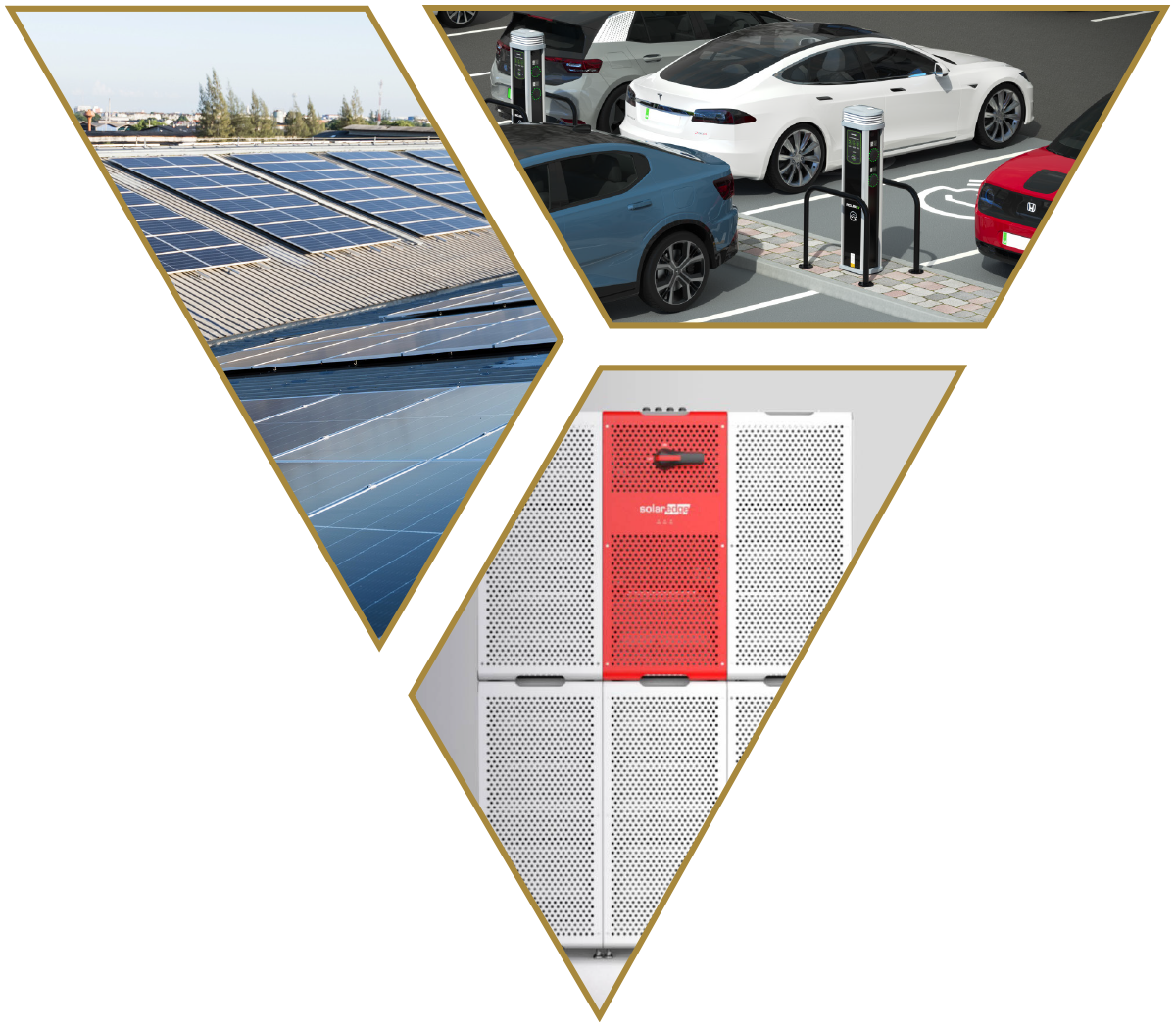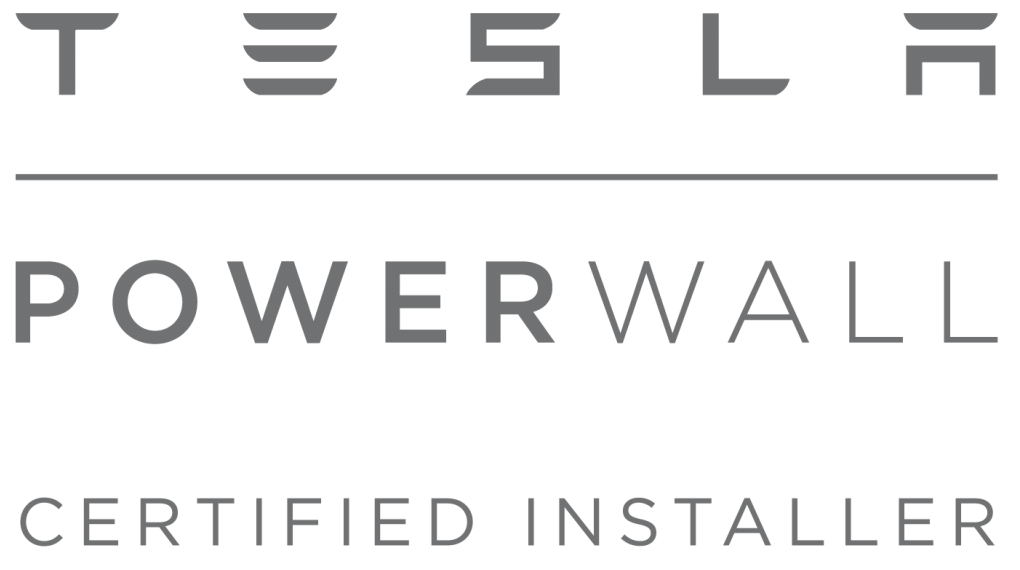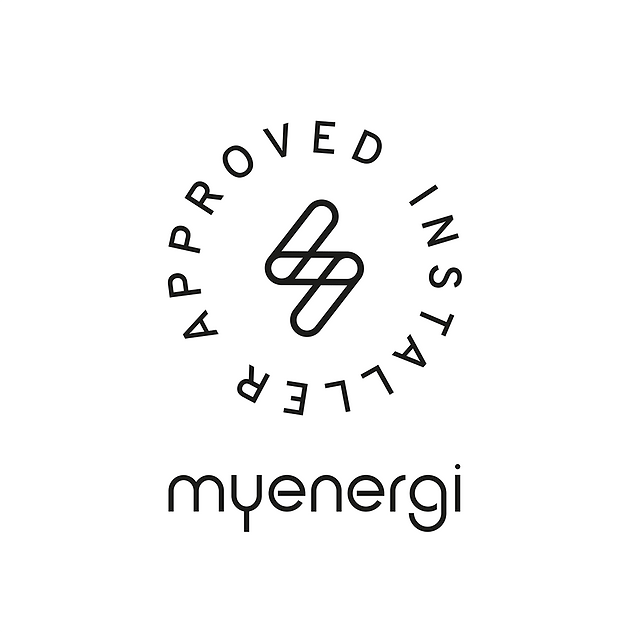Store Surplus energy to use when you need it most
JDM Earth is your trusted partner for solar and battery storage solutions. Our expertise allows us to assess your suitability for storage and deliver customised solutions and installations.
Whether integrated into your broader energy strategy alongside commercial solar PV or deployed as a standalone solution, our solar battery storage systems offer both cost savings and investment potential.
Why Install a battery storage system?
Store Surplus Solar and wind energy for use when you need it most
Become less grid dependant
Charge from the grid with your low cost Tariff and discharge to your property during peak times
COMMERCIAL BATTERY STORAGE
TAKE CONTROL & REDUCE ENERGY COSTS WITH BATTERY STORAGE
Commercial battery storage is a forward-thinking energy solution designed to benefit businesses of all sizes. It empowers you to take control of your energy usage, optimise cost savings, and reduce your reliance on the grid.
With battery storage, you can store surplus energy generated by your commercial solar panels and use it during peak demand or when grid electricity is more expensive. This flexibility not only enhances your energy efficiency but also provides invaluable peace of mind in case of power outages. By choosing commercial battery storage, you’re making a strategic investment in a sustainable, resilient, and cost-effective energy future for your business.








Optimise Your Energy Use with Time-Based Electricity Management
Efficiently manage electricity consumption by implementing time-based electricity management, shifting energy use to cost-effective periods. This technique lets you benefit from lower energy tariffs while storing excess renewable energy.
To reduce costs, recharge storage during off-peak or excess daytime energy. Use stored energy during high-demand periods with peak prices.
Time-based electricity management streamlines expenses and reduces grid variability, cutting emissions and potential upgrade costs.
Backup Power Supply
Energy storage systems offer backup power for your business during grid outages, ensuring uninterrupted operations. These systems recharge using grid electricity when available, as well as surplus energy from your business’s system, allowing you to quickly resume operations. We work with you to design a customized backup solution tailored to your specific business needs.
Peak Load Optimisation (Peak Shaving)
Excessive peak loads can lead to substantial expenses for businesses unable to mitigate consumption spikes. Employing your business’s battery storage system in peak load optimisation mode allows you to smooth out these peak demands effectively.
Peak load optimisation minimises grid-related expenses, resulting in substantial energy cost savings. These savings can then be redirected towards business growth and development.
COMMERCIAL BATTERY STORAGE
CAN BE USED ALONE
OR COMBINED WITH SOLAR PV
Considering pairing your Storage with Commercial Solar PV?
This can often maximise your savings.
Q&A
Where will my battery be installed?
JDM Earth offers battery options that can be installed indoors or outdoors. However, please note that other batteries you may researching could be limited to indoor installations due to their IP rating. We typically advise against loft space installations and prefer placing batteries in garages or on outdoor walls. If these options are not feasible, we’ll work with you to explore alternative locations. Some batteries can be both floor and wall-mounted, while others are specifically designed for wall mounting. Rest assured, we always adhere to manufacturers’ guidelines and can discuss installation details with you.
How much battery storage do I need?
Determining the appropriate amount of battery storage you need depends on your specific energy goals and usage patterns. Here are some factors to consider when deciding how much battery storage you need:
• Electricity Usage: Review your electricity bills to understand your typical daily and monthly energy consumption. This data will help you estimate how much energy you want to store.
• Backup Power Needs: If you want the battery primarily for backup power during outages, calculate how much energy you need to keep essential appliances running during a blackout.
• Solar Panel Output: If you have solar panels, consider how much excess energy they generate that you can store for use during non-sunny hours.
• Grid Interaction: Determine whether you want to rely more on stored energy or continue grid interaction. Smaller batteries may be suitable for grid support and reducing peak demand charges.
• Budget: Your budget plays a significant role in the size of the battery you can afford. Larger batteries typically store more energy but come at a higher cost.
• Space: Consider the available space for the battery installation, as larger batteries may require more room.
• Local Incentives: Check if there are any local incentives or regulations that influence the size of the battery you can install.
Should you wish to discuss this further, can you assess your energy usage, goals, and system requirements to recommend an appropriately sized battery for your specific situation. Additionally, they can provide insights into the available battery options and their capabilities, to help you make an informed decision.
What is the usable capacity of a battery?
The usable capacity of a battery storage system refers to the amount of energy that can be safely stored and discharged from the battery without causing damage or significantly reducing the battery’s lifespan. Usable capacity is typically expressed in kilowatt-hours (kWh) and is a critical factor to consider when choosing a battery for your solar PV system or energy storage needs.
The usable capacity is less than the total capacity of the battery, which is often referred to as its nominal capacity or rated capacity. Several factors affect the usable capacity of a battery:
Depth of Discharge (DoD): Most batteries are designed to operate within a certain depth of discharge range. For example, a battery with a 90% depth of discharge means you can use up to 90% of its rated capacity before recharging. Going beyond this limit can lead to reduced battery life.
• Battery Chemistry: Different battery chemistries have varying usable capacity levels. For instance, lithium-ion batteries often have a higher usable capacity compared to lead-acid batteries.
Battery Age: As batteries age, their usable capacity may gradually decrease, resulting in reduced energy storage capability.
• Operating Conditions: Extreme temperatures, overcharging, or discharging at high rates can affect the usable capacity of a battery.
• Battery Management Systems (BMS): Some batteries incorporate advanced battery management systems to optimise and protect the battery, helping maintain its usable capacity over time.
When selecting a battery storage system, it’s essential to consider the usable capacity to ensure it aligns with your energy storage needs. We can advise provide advice and guidance in relation to the products we suggest for you.
What is a cycle?
A battery cycle, or charge-discharge cycle, refers to the process of charging a battery from its discharged state to fully charged and then discharging it again. It’s a critical factor in determining a battery’s lifespan and performance.
What is the difference between AC and DC coupled batteries?
AC-coupled and DC-coupled batteries are two distinct configurations used in energy storage systems, such as those paired with solar PV installations. They differ in how they connect to the electrical grid and solar panels, affecting their functionality and compatibility. Here’s a brief comparison:
AC-Coupled Batteries:
• Separate Inverters: In an AC-coupled system, the solar PV panels and the battery storage system each have their own inverters. The solar panels convert sunlight into DC (direct current) electricity, and this DC power is converted to AC electricity by the solar inverter.
• Grid Connection: AC-coupled systems are directly connected to the grid. The solar PV system can feed excess energy into the grid when it generates more electricity than is needed, and it can draw energy from the grid when sunlight is insufficient.
• Compatibility: AC-coupled batteries are often retrofitted more easily into existing solar PV installations. They are also compatible with a wider range of solar inverters, which can be advantageous for homeowners looking to add energy storage to an existing solar system.
• Emergency Backup: AC-coupled systems can provide backup power during grid outages, as they have the ability to disconnect from the grid and operate in island mode.
DC-Coupled Batteries:
• Shared Inverter: In a DC-coupled system, the solar panels and the battery share a single inverter. This inverter typically performs both solar panel conversion (from DC to AC) and battery charging/discharging (from AC to DC).
• Optimized Charging: DC-coupled systems may offer more efficient charging of the battery because they can capture DC power directly from the solar panels before it goes through the DC-AC conversion process.
• Grid Connection: Like AC-coupled systems, DC-coupled systems are also connected to the grid. They can interact with the grid for net metering and draw electricity from it during low solar production.
• Compatibility: DC-coupled batteries may be more limited in terms of compatibility with various solar inverters, and they may require specific inverters that support DC-coupled configurations.
The choice between AC-coupled and DC-coupled batteries depends on factors such as the existing solar PV system, compatibility with inverters, and specific energy management goals. Both configurations have their advantages and can provide energy storage solutions tailored to the needs of the homeowner or business. Consulting with a solar installer or energy professional can help you determine the best option for your situation.
Will my battery work during a power outage?
Whether your battery will work during a power outage depends on its configuration. Many grid-tied battery systems are designed for backup power and can automatically switch to provide electricity during outages. However, not all batteries offer this feature, so it’s crucial to check with your installer or manufacturer to confirm its capabilities.
Is JDM Earth MCS registered for Battery Storage?
Yes, JDM Earth is registered with the Microgeneration Certification Scheme (MCS) for both solar PV and battery storage installations. This certification demonstrates their commitment to maintaining high standards and ensuring the quality and reliability of their energy storage systems. It’s important to work with MCS-certified installers when considering solar PV and battery storage solutions to ensure compliance with industry standards and eligibility for incentives or subsidies.
Are you Tesla Approved?
Yes, JDM Earth are registered Tesla Powerwall and Tesla Wall Connector installers.
How long does a battery take to charge?
The time it takes for a solar PV battery to charge depends on several factors, including the capacity of the battery, the amount of sunlight available, the efficiency of the solar panels, and the charge/discharge rate of the battery. Here are some key considerations:
• Battery Capacity: The larger the capacity (measured in kilowatt-hours or kWh) of your battery, the longer it will take to charge fully. A battery with a higher capacity can store more energy but may take more time to charge.
• Solar Panel Output: The amount of energy your solar panels can generate depends on the size and efficiency of the panel array, as well as the intensity of sunlight. On a sunny day, solar panels can generate more electricity, leading to faster charging.
• Sunlight Availability: The duration of sunlight hours in your location plays a crucial role in how quickly your battery charges. Solar panels can only generate electricity during daylight hours.
• Efficiency Losses: Some energy is lost during the conversion and charging process due to factors like inverter efficiency and transmission losses. These losses can affect the overall charging time.
• Battery Chemistry: Different battery chemistries have varying charging efficiencies. For example, lithium-ion batteries, which are commonly used in solar storage systems, tend to charge more efficiently than some other types of batteries.
• Charge/Discharge Rate: The rate at which the battery is charged can also impact the charging time. Faster charging rates may be possible but could lead to more energy losses or increased wear on the battery.
In a typical solar PV system, the battery charges when there is excess electricity generated by the solar panels that is not immediately used in the home. The charging time can vary from a few hours to several hours or more, depending on the factors mentioned above.
Will my EV charging point drain my battery?
Ensuring compatibility between chargers and your solar PV system and battery is crucial and depends on various factors. These include the type of battery, inverter compatibility, voltage, current, communication protocols, system setup and manufacturer recommendations.
Selecting the wrong EV charge point could potentially drain your battery, which is something we want to avoid.
For instance, the myenergi libbi is an excellent choice when used within its ecosystem. The Zappi car charger is specifically designed for seamless integration, ensuring it won’t deplete your battery unnecessarily.
If you’re considering EV charging, it’s vital to take these factors into account. Our dedicated technical team is always available to discuss your specific needs and recommend the best-suited options for your setup. Feel free to reach out for expert guidance.
JDM EARTH
CUSTOMER REVIEWS


